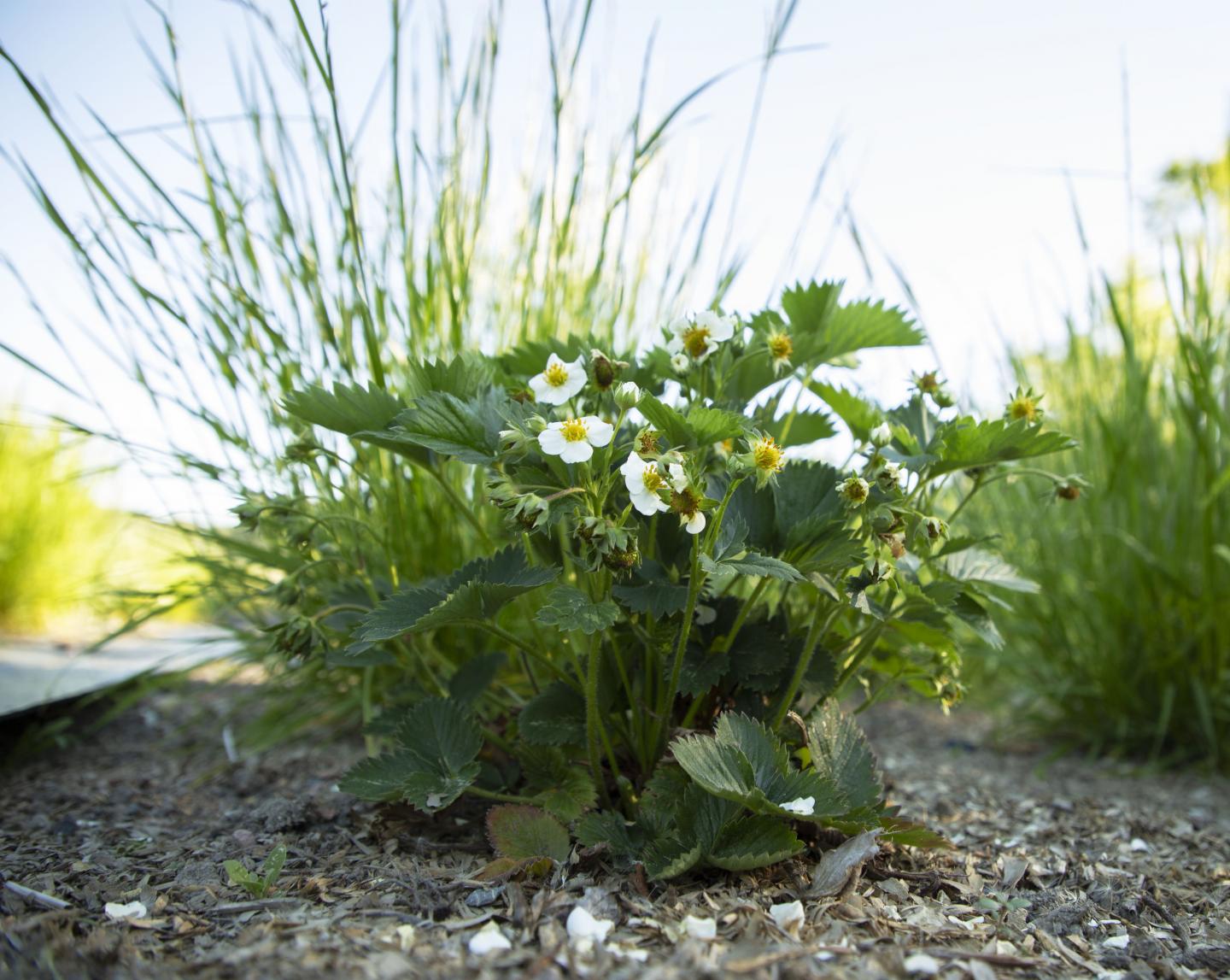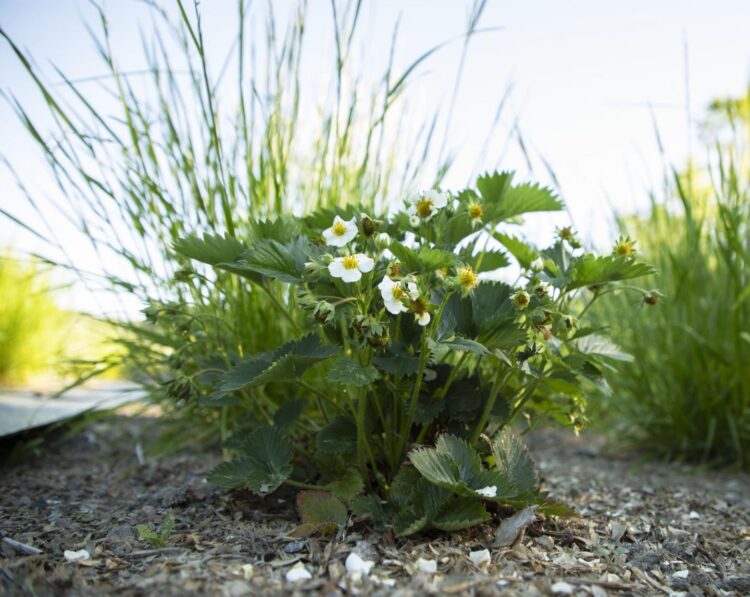
Credit: Viivi Saikkonen
A new study finds that glyphosate residue in manure fertilizer decrease the growth of strawberry and meadow fescue as well as runner production of strawberry.
Earlier experiments with Japanese quails showed how glyphosate residue in poultry feed accumulated in quail manure. In these experiments, half of the quails were fed with glyphosate-contaminated feed while the control group were fed with organic feed free from glyphosate residues. This allowed testing whether glyphosate residues in poultry manure affect crop plants if the manure is used as a fertilizer.
“We established an experimental field where we planted both strawberry and meadow fescue. These plants were fertilized with bedding material containing excrements from quails raised on feed containing glyphosate residue and organic feed free of the residue,” tells Senior Researcher Anne Muola from the Biodiversity Unit of the University of Turku, Finland.
Decreased growth as well as indirect effects
The growth and reproduction of strawberry and meadow fescue were monitored throughout one growing season. High amount of glyphosate residue (158 mg/kg) decreased the growth of both studied crop plants and runner production of strawberry even if the amount of glyphosate in the soil decreased fast during the growing season.
In addition, the manure fertilizer containing glyphosate residue was found to have indirect effects. Larger meadow fescues were producing more inflorescences and herbivorous insects preferred larger strawberries.
“Our results support earlier studies which have found that already very small glyphosate residue (
Glyphosate-based herbicides are the most frequently used herbicides globally. Many GMO crops are so called “glyphosate ready” meaning that they are resistant to glyphosate. This allows agricultural practices where glyphosate is applied in considerable amounts which increases the likelihood of its residue ending up in animal feed.
“For instance, the cultivation of GM soy is not allowed in the EU. Still, soy is an excellent energy and protein source and it is imported from outside the EU to be used as a component in animal feed. The glyphosate residues in feed are then accumulated in poultry excrement,” says Marjo Helander and continues:
“Poultry manure is rich in essential nutrients and organic compounds, and thus, to increase the sustainability of poultry industry, regulations suggest that poultry manure should be used as an organic fertilizer. However, this can lead into a situation where glyphosate can be unintentionally spread to fields or gardens via organic fertilizer, counteracting its ability to promote plant growth.”
###
Media Contact
Marjo Helander
[email protected]
Original Source
https:/
Related Journal Article
http://dx.





